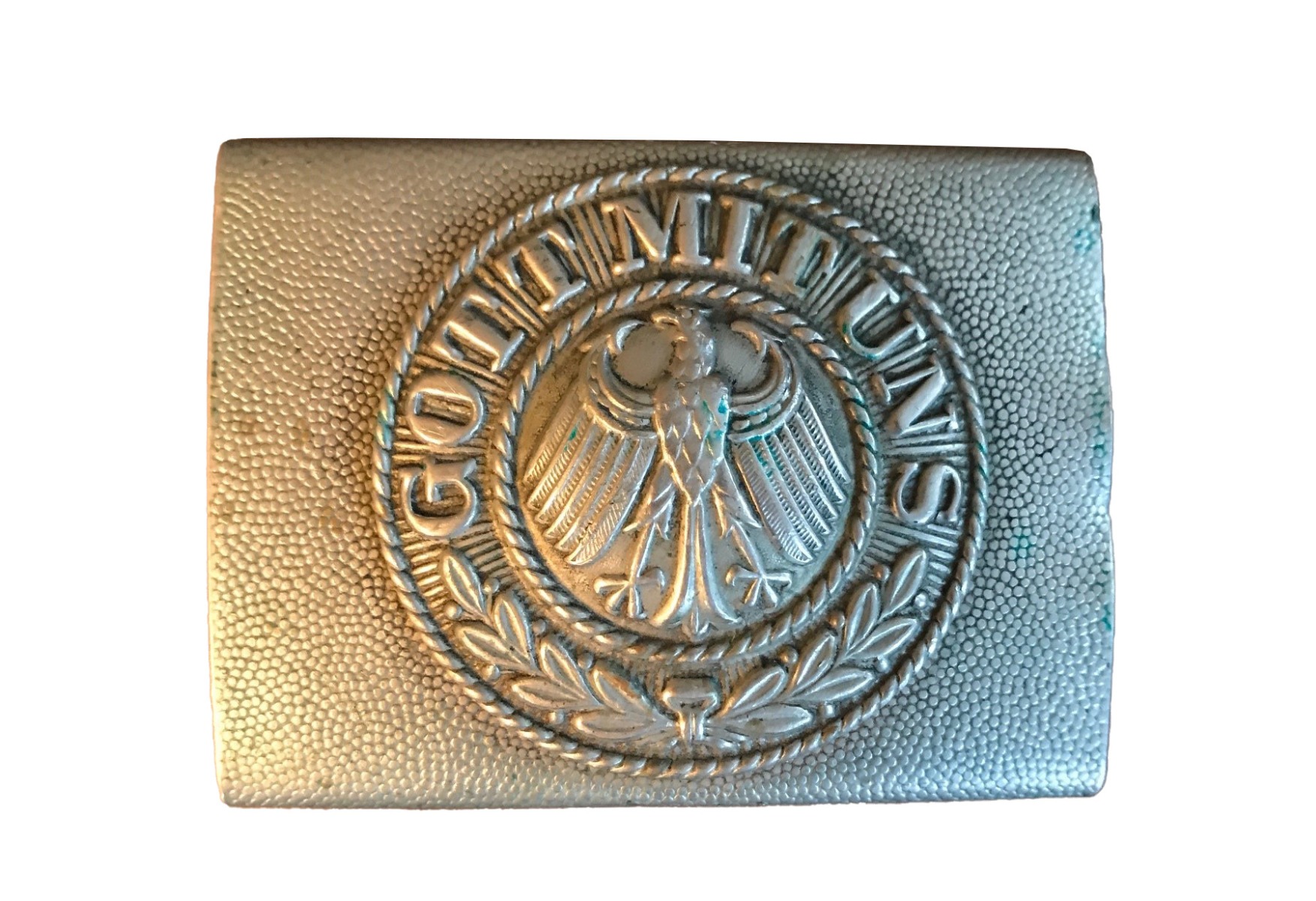GERMAN WEIMAR REPUBLIC EM/NCO BELT BUCKLE 1921-1934
GERMAN EM/NCO GOTT MIT UN BELT BUCKLE WEIMAR REPUBLIC - ORIGINAL
EM/NCO belt buckle (Koppelschloss) Weimar Republic 1921-1934.
A rectangular die stamped buckle constructed of nickel in silver. It is pebbled with a high relief centre with the Weimar style national eagle with downswept wings. This is surrounded by a border with the inscription “GOTT MIT UN” or GOD WITH US. Also has a laurel leaf cluster tied with ribbon at the bottom within a twisted rope border.
The reverse has a U shaped buckle slot and a prong bar with two prongs, ground found, measuring 62.22 mm x 47.27 mm.
This is an original belt buckle in excellent condition.
The Weimar Republic is an unofficial, historical designation for the German state during the years 1919 to 1933. The name derives from the city of Weimar, where its constitutional assembly first took place. The official name of the state remained Deutsches Reich, unchanged since 1871. In English, the country was usually known simply as Germany.
A national assembly was convened in Weimar, where a new constitution for the Deutsches Reich was written and adopted on 11 August 1919. In its fourteen years, the Weimar Republic faced numerous problems, including hyperinflation, political extremism as well as contentious relationships with the victors of the First World War. The people of Germany blamed the Weimar Republic rather than their wartime leaders for the country's defeat and for the humiliating terms of the Treaty of Versailles. Weimar Germany fulfilled most of the requirements of the Treaty of Versailles although it never completely met its disarmament requirements and eventually paid only a small portion of the war reparations. Under the Locarno Treaties, Germany accepted the western borders of the republic, but continued to dispute the eastern borders.
From 1930 onwards President Hindenburg used emergency powers to back Chancellors Heinrich Brüning, Franz von Papen and General Kurt von Schleicher. The Great Depression, exacerbated by Brüning's policy of deflation, led to a surge in unemployment. In 1933, Hindenburg appointed Adolf Hitler as Chancellor with the Nazi Party being part of a coalition government. The Nazis held two out of the remaining ten cabinet seats. Von Papen as Vice Chancellor was intended to be the "éminence grise" who would keep Hitler under control, using his close personal connection to Hindenburg. Within months, the Reichstag Fire Decree and the Enabling Act of 1933 had brought about a state of emergency: it wiped out constitutional governance and civil liberties. Hitler's seizure of power was permissive of government by decree without legislative participation. These events brought the republic to an end—as democracy collapsed, the founding of a single-party state began the Nazi era.
| SKU | O593 |
|---|---|
| Weight | 0.101000 |


